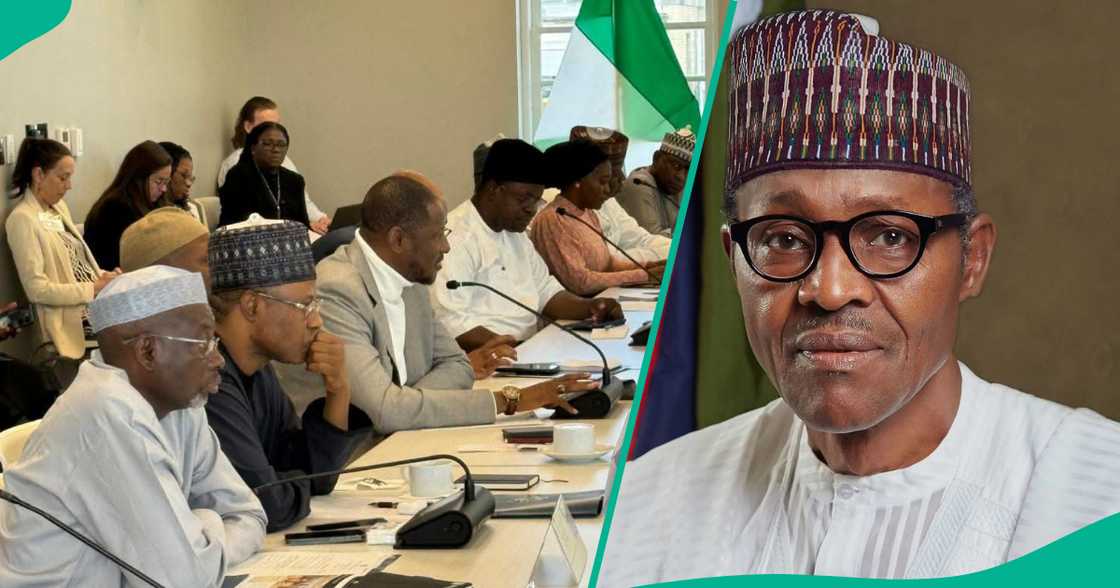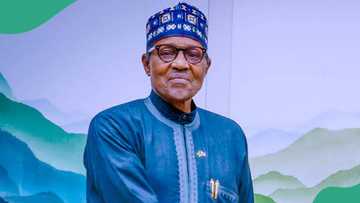Why Former President Buhari Was Arrested and Spent 3 Years in Prison
- Former Nigerian President Muhammadu Buhari was detained for over three years following the abrupt end of his military regime in 1985
- His government, once heralded by some as a beacon of discipline, later drew criticism for ruling through fear and widespread detentions without trial
- Renewed interest in his arrest has reignited debate on whether his controversial policies were oppressive or essential for national reform
Fresh attention has been drawn to the arrest and prolonged imprisonment of former Nigerian President Muhammadu Buhari following the collapse of his military regime in 1985.
Historical sources including StartArchiving have resurfaced, detailing Buhari’s detention which spanned over three years after his government was ousted in a coup.

Source: Twitter
The Buhari-led administration, in power for 20 months, was widely viewed at the time as one of the most authoritarian Nigeria had experienced.
According to accounts, Buhari was removed from office alongside his then deputy, Tunde Idiagbon, in what many Nigerians celebrated as the end of an iron-fisted rule.

Read also
Buhari’s wealth and money in his bank account as declared in his first and second terms released
Military rule and use of fear as state policy
Commentary shared by StartArchiving reflected the deep public sentiment at the time. One extract noted, “In the beginning, it seemed as if God sent Muhammadu Buhari to rescue his children from irascible Philistines. (But) the Buhari-Idiagbon duo was the first set of Nigerians to practicalise the concept of fear as an instrument of state policy in Nigerian history.”
During their time in power, the regime faced criticism for widespread human rights violations, particularly the detention of citizens without trial.
As quoted by StartArchiving: “The indiscriminate detention of Nigerians without trial did not endear the regime to a majority of Nigerians.”
Public perception and historical reflection
Following Buhari’s release several years later, reports suggested that celebrations erupted in various parts of the country. Yet public opinion on his legacy remained divided.
While some Nigerians viewed his policies as draconian, others argued they represented the kind of decisive governance the nation desperately needed at the time.
“People have a notoriously short memory,” the archival note explained, “and their increasing deprivation has made a sizable number of them to express nostalgia for the Buhari-Idiagbon period.”
The renewed interest in Buhari’s time in detention and the broader narrative of his rule reflects Nigeria’s continued reckoning with its past, where firmness in leadership often sparked equal parts admiration and dissent.

Source: Facebook
Tinubu summons emergency FEC meeting after Buhari’s death
Legit.ng earlier reported that President Bola Tinubu summoned an emergency session of the Federal Executive Council, scheduled to take place on Tuesday, 15 July 2025. The special sitting would be held in tribute to the late former President Muhammadu Buhari, who died in a UK hospital on Sunday.
The announcement came through a statement personally signed by Tinubu on Sunday evening, following confirmation of Buhari’s death. According to the President, Nigeria would bestow full state honours upon the former leader.
Tinubu expressed deep grief over Buhari’s passing, describing the loss as one that left him with “profound sorrow and a heavy heart.” He remarked that Nigeria had lost one of its most steadfast champions.
Source: Legit.ng


